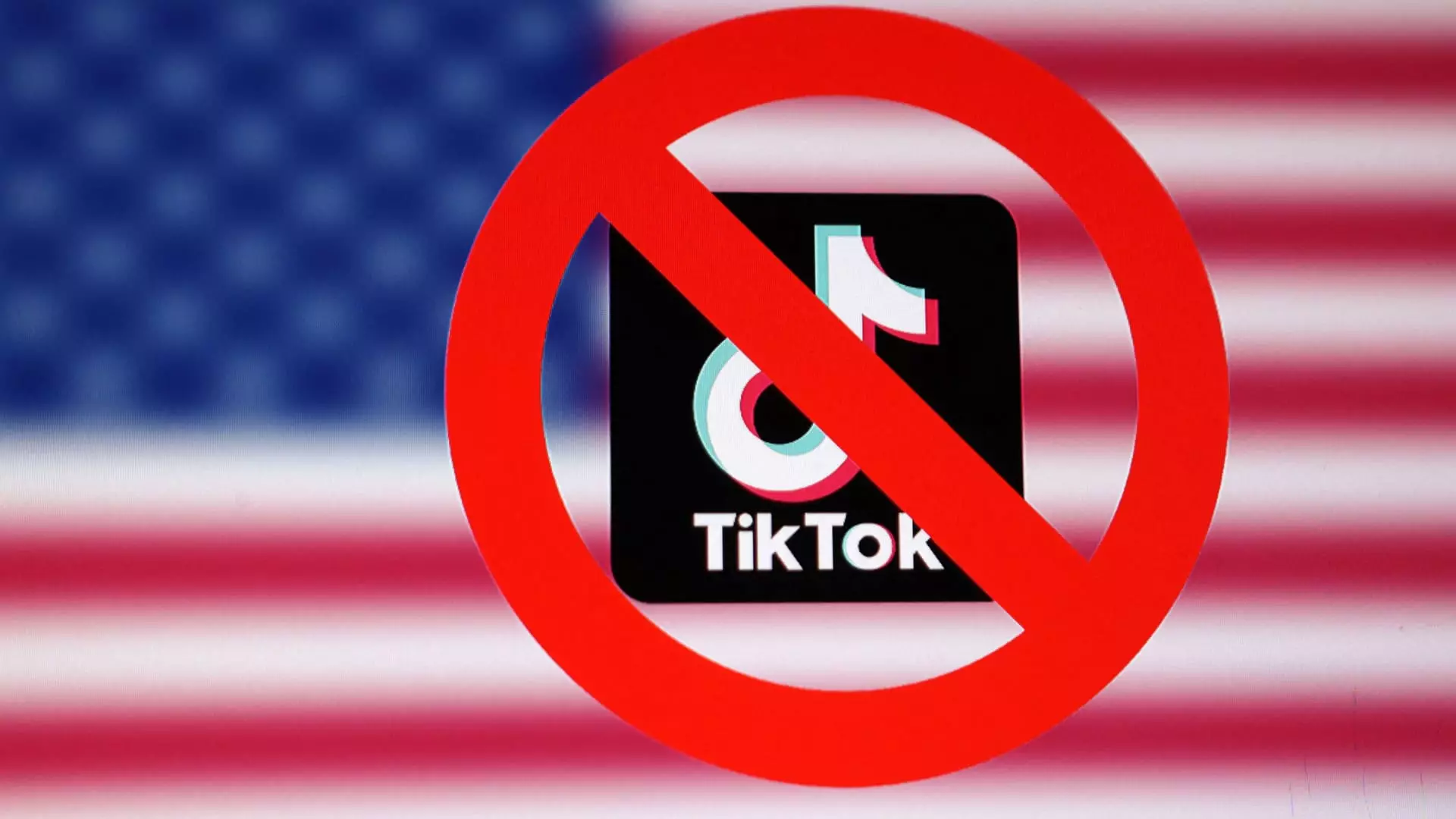The rapid evolution of technology and the internet has consistently reshaped the social media landscape. Amidst this transformation, TikTok has emerged as one of the most influential platforms, connecting millions through its short-form videos. However, recent legislative actions have placed its future in the United States in serious jeopardy. The decision by Apple and Google to remove TikTok from their app stores reflects not only compliance with legal demands but underscores broader geopolitical tensions and concerns related to data privacy.
On a significant Saturday night, Apple and Google complied with the Protecting Americans from Foreign Adversary Controlled Applications Act, a move that followed a unanimous ruling by the Supreme Court upholding the law. This enactment mandates that ByteDance, TikTok’s parent company based in China, must divest the social media platform, or risk a complete ban. As a result, users in the United States are no longer able to download TikTok from either app store, thus marking a seismic shift in the accessibility of this beloved digital tool.
The implications of the law are dire; it effectively holds the future of TikTok in a precarious balance. Messages on both Apple’s App Store and Google Play Store now communicate the unavailability of the app, revealing that legislative action has immediate consequences for users and businesses alike. TikTok’s own messaging to users—highlighting the cessation of services in the U.S.—hints at the legal realities that overshadow the platform’s formerly unhindered creativity and community engagement.
In the wake of TikTok’s removal, many users were met with pop-up notices explaining that “TikTok isn’t available right now.” This indicates more than just an inconvenience for casual users; it signals potential economic repercussions for over 7 million American businesses that leverage TikTok for marketing and outreach. The creators on TikTok, who often generate income through sponsorships and partnerships, now find their avenues restricted.
Interestingly, another ByteDance-owned service, Lemon8, also faced a similar fate as users encountered notices signaling its unavailability in the U.S. This expansion of the restriction raises questions about the potential ripple effects on alternative platforms owned by foreign entities. As users eyes begin to wander toward other platforms, the long-term market share and influence of American social media companies could be drastically altered.
The climate surrounding TikTok’s removal is intensified by the upcoming transition of presidential power. President Joe Biden’s administration has been under the spotlight for its role in enforcing this legal framework. On the other hand, former President Donald Trump has indicated his willingness to explore a political resolution that potentially reinstates TikTok, leading to speculation about compromises in the future.
With Trump poised to return to political prominence, there is talk of a 90-day extension to the process of TikTok’s divestiture—a potential lifeline for the platform. Trump’s statement that he will carefully analyze the situation demonstrates a recognition of TikTok’s valued place within American culture and business. This interplay of political maneuvering signals that TikTok’s fate may not be entirely sealed but is subject to changes in the political landscape.
As the TikTok saga unfolds, various startups have emerged expressing interest in acquiring the platform. Perplexity AI, an artificial intelligence startup, recently submitted a bid that aims to merge its operational model with TikTok’s U.S. operations. Such business propositions indicate that there is still significant interest in TikTok as a brand and platform, even amid controversy. Frank McCourt’s Project Liberty bid, emphasizing a disentanglement from Chinese algorithms, further underscores the complexity of TikTok’s position within the global market.
The potential for new ownership could lead to a transformation in how TikTok operates, potentially bringing with it fresh perspectives on privacy and data management. The business landscape surrounding tech giants often requires navigating legal implications alongside public sentiment, making the eventual transition for TikTok likely a subject of much scrutiny.
The removal of TikTok from app stores is not simply about switching off a popular application; it encapsulates a larger narrative about digital security, foreign influence, and the evolving laws that govern technology. As businesses and users grapple with these significant changes, they are also anticipating potential shifts in strategy under new leadership. The ongoing saga underscores the contested ground of digital platforms in today’s geopolitical climate. The future of TikTok may remain uncertain, but it undoubtedly reflects larger trends in technology, regulation, and international relations that will shape how digital interactions evolve over the coming years.

